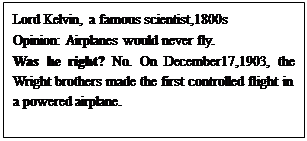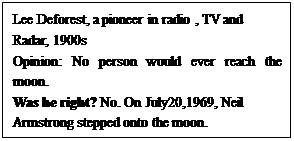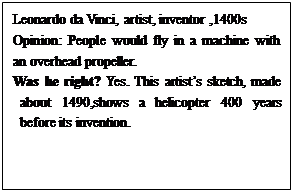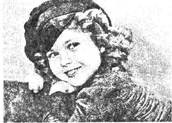题目内容
America is a mobile society. Friendships between Americans can be close and real, yet disappear soon if situations change. Neither side feels hurt by this. Both may exchange Christmas greetings for a year or two, perhaps a few letters for a while - then no more. If the same two people meet again by chance, even years later, they pick up the friendship. This can be quite difficult for us Chinese to understand, because friendships between us flower more slowly but then may become lifelong feelings, extending(延伸)sometimes deeply into both families.
Americans are ready to receive us foreigners at their homes, share their holidays, and their home life. They will enjoy welcoming us and be pleased if we accept their hospitality(好客) easily.
Another difficult point for us Chinese to understand Americans is that although they include us warmly in their personal everyday lives, they don't show their politeness to us if it requires a great deal of time. This is usually the opposite of the practice in our country where we may be generous with our time. Sometimes, we, as hosts, will appear at airports even in the middle of the night to meet a friend. We may take days off to act as guides to our foreign friends. The Americans, however, express their welcome usually at homes, but truly cannot manage the time to do a great deal with a visitor outside their daily routine(事务). They will be likely to expect us to get ourselves from the airport to our own hotel by bus. And they expect that we will phone them from there. Once we arrive at their homes, the welcome will be full, warm and real. We will find ourselves treated hospitably.
For the Americans, it is often considered more friendly to invite a friend to their homes than to go to restaurants, except for purely business matters. So accept their hospitality at home!
小题1:The writer of this passage must be_______.
小题2:Which of the following is true according to the passage?
小题3:From the last two paragraphs we can learn that when we arrive in America to visit an American friend, we will be_______.
小题4:The underlined words "generous with our time" in Paragraph 3 mean_______.
Americans are ready to receive us foreigners at their homes, share their holidays, and their home life. They will enjoy welcoming us and be pleased if we accept their hospitality(好客) easily.
Another difficult point for us Chinese to understand Americans is that although they include us warmly in their personal everyday lives, they don't show their politeness to us if it requires a great deal of time. This is usually the opposite of the practice in our country where we may be generous with our time. Sometimes, we, as hosts, will appear at airports even in the middle of the night to meet a friend. We may take days off to act as guides to our foreign friends. The Americans, however, express their welcome usually at homes, but truly cannot manage the time to do a great deal with a visitor outside their daily routine(事务). They will be likely to expect us to get ourselves from the airport to our own hotel by bus. And they expect that we will phone them from there. Once we arrive at their homes, the welcome will be full, warm and real. We will find ourselves treated hospitably.
For the Americans, it is often considered more friendly to invite a friend to their homes than to go to restaurants, except for purely business matters. So accept their hospitality at home!
小题1:The writer of this passage must be_______.
| A.an American | B.a Chinese | C.a visitor | D.a student |
| A.Americans will continue their friendships again even after a long break. |
| B.Americans are usually more friendly than Chinese. |
| C.Americans always show their warmth even if they are very busy. |
| D.Friendships between Americans usually last for all their lives. |
| A.warmly welcomed at the airport |
| B.offered a ride to his home |
| C.treated hospitably at his home |
| D.treated to dinner in a restaurant |
| A.strict with time | B.willing to spend time |
| C.careful with time | D.free with time |
小题1:B
小题2:A
小题3:C
小题4:B
试题分析:这篇短文主要介绍了中国人和美国人在对待友谊的差异及在接待客人方面的不同之处。
小题1:细节理解题。根据短文第一段This can be quite difficult for us Chinese to understand中的同位语us Chinese,可知作者是个中国人,故选B。
小题2:是非判断题。根据第一段If the same two people meet again by chance, even years later, they pick up the friendship描述及对比其他选项,故选A。
小题3:推理判断题。根据第三段Once we arrive at their homes, the welcome will be full, warm and real. We will find ourselves treated hospitably.,故选C
小题4:词意猜测题。根据划线部分后面描述Sometimes, we, as hosts, will appear at airports even in the middle of the night to meet a friend. We may take days off to act as guides to our foreign friends.可知上文在表示中国人对时间很慷慨,即乐意花费时间陪客人,故选B

练习册系列答案
相关题目










